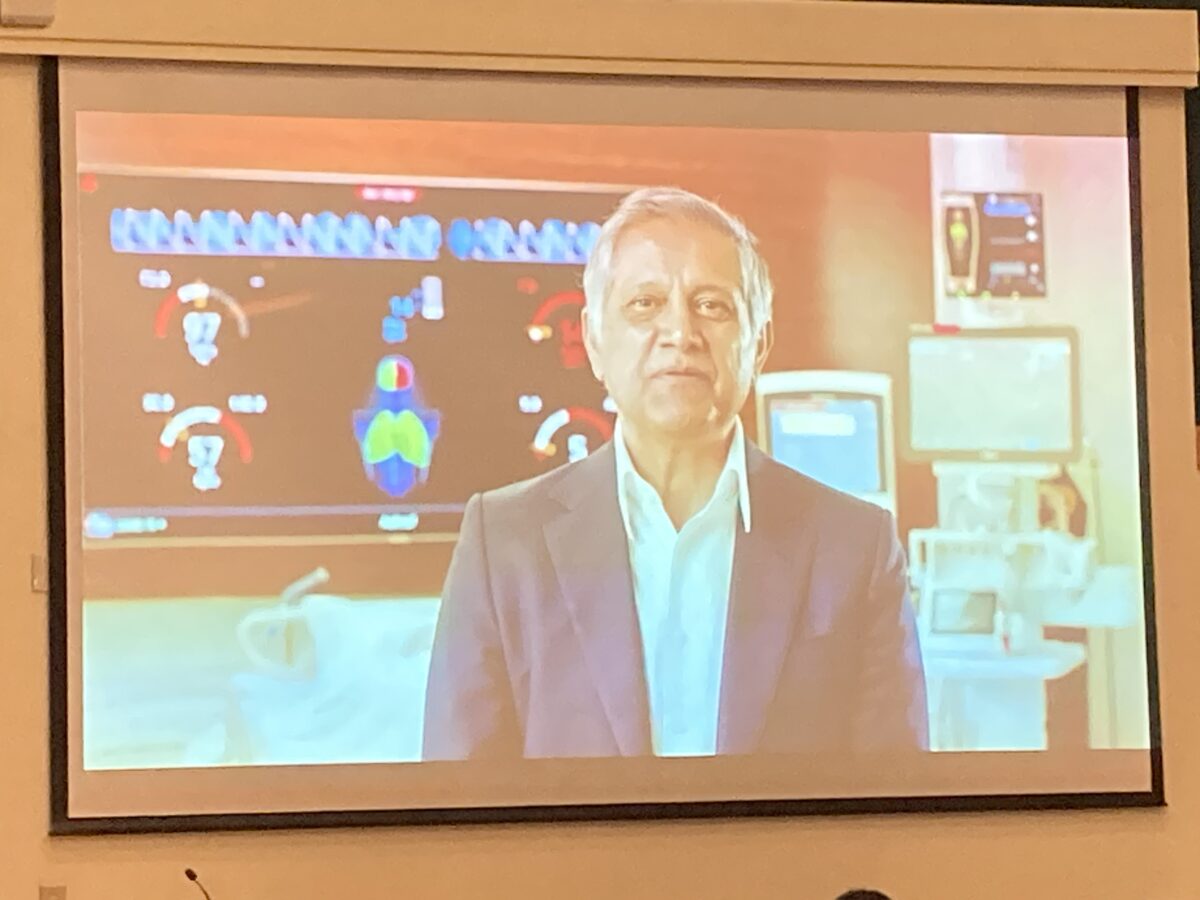A quarter of Medicare patients experienced some form of harm while hospitalized during one month in 2018, per a report from the US Department of Health and Human Services’ Office of the Inspector General. And the early months of COVID-19 saw a 28% increase in central-line bloodstream infections in acute care hospitals.
Medical mistakes are caused by plenty of factors. Some regional leaders are betting that better tech can improve healthcare patients’ care.
The Pittsburgh Regional Health Initiative (PHRI) gathered medical professionals and technologists at Carnegie Mellon University last week to announce a new initiative geared toward making Pittsburgh a hub for the development of autonomous patient safety technologies.
Introduced by the PRHI and parent org Jewish Healthcare Foundation, the Pittsburgh Regional Autonomous Patient Safety Initiative aims to harness the region’s pre-existing technological strengths to create a new industry focused on the development of autonomous patient safety technologies.
In a world filled with so much technology, Jewish Healthcare Foundation President and CEO Karen Wolf Feinstein said at the kickoff event this past Friday, it was a missed opportunity not to use it to improve patients’ experiences.
“We have a problem in healthcare,” Feinstein said. “There is no dedicated team working on patient safety, and exploring the opportunities that modern technologies bring.” Addressing this problem has only become more important due to the way the pandemic has impacted healthcare workers through workforce shortages, burnout and increased turnover, she added.
Following the initial announcement of the program this past Friday, the Regional Autonomous Patient Safety Initiative will form a global advisory board to outline the existing problems that need to be addressed, design objectives, set a timeline for the initiative’s advancement, and determine the most effective methods to use.
The advisory board will include participants on a global scale. With its backing, a concept note will be used to bring R&D funding to the region. As it stands, the initiative already has CMU’s Center for Digital Health Innovation and the University of Pittsburgh’s Department of Biomedical Informatics as two key funding recipients in the form of two $500,000 grants, to be deployed over two years.
During his keynote address at Friday’s kickoff event, Joe Kiani, the CEO of Irvine, California-based Masimo Corp., called for there to be a standing operating procedure in hospitals to prevent human errors from becoming medical errors that cause patients’ care to suffer. Speaking as someone who runs a company that develops medical technology, he said, the key to a better future is to change the way healthcare workers are managed. For instance, a doctor or nurse could have a technological safety net such as an app, as opposed to being burdened with solely retaining copious amounts of crucial information pertaining to patient safety.
“Every medical error has to do with poor hand-off communication,” Kiani said.
Atiya Irvin-Mitchell is a 2022-2024 corps member for Report for America, an initiative of The Groundtruth Project that pairs young journalists with local newsrooms. This position is supported by the Heinz Endowments.Before you go...
Please consider supporting Technical.ly to keep our independent journalism strong. Unlike most business-focused media outlets, we don’t have a paywall. Instead, we count on your personal and organizational support.
3 ways to support our work:- Contribute to the Journalism Fund. Charitable giving ensures our information remains free and accessible for residents to discover workforce programs and entrepreneurship pathways. This includes philanthropic grants and individual tax-deductible donations from readers like you.
- Use our Preferred Partners. Our directory of vetted providers offers high-quality recommendations for services our readers need, and each referral supports our journalism.
- Use our services. If you need entrepreneurs and tech leaders to buy your services, are seeking technologists to hire or want more professionals to know about your ecosystem, Technical.ly has the biggest and most engaged audience in the mid-Atlantic. We help companies tell their stories and answer big questions to meet and serve our community.
Join our growing Slack community
Join 5,000 tech professionals and entrepreneurs in our community Slack today!

The person charged in the UnitedHealthcare CEO shooting had a ton of tech connections

From rejection to innovation: How I built a tool to beat AI hiring algorithms at their own game

Where are the country’s most vibrant tech and startup communities?



